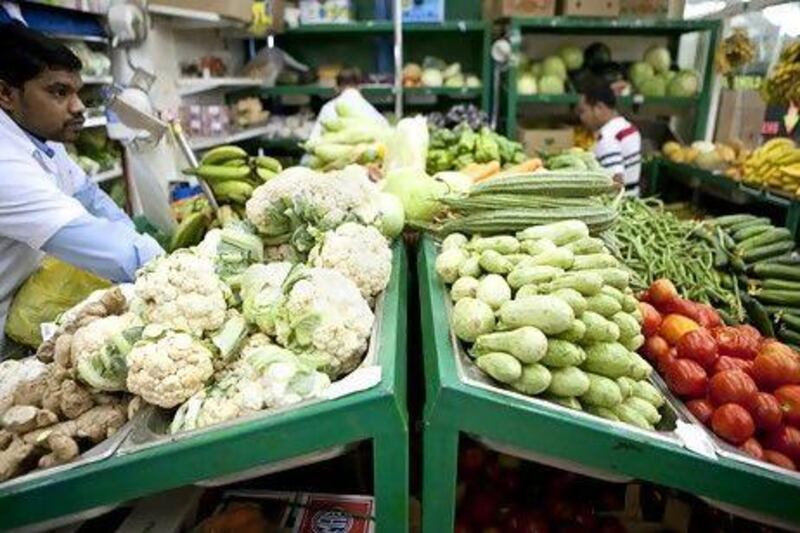Compare prices from stores around the world here.
Shoppers are bagging bargains at supermarkets as Ramadan cost-cutting drives down the price of the weekly shop.
Price controls have meant a basket of basic foods, including flour, bread and meat, now costs 15 per cent less than in December.
Prices for branded goods have fallen by 8 per cent, according to an analysis by The National.
The second quarter of the year brought little change in prices compared with the first quarter, when the Government stepped up its efforts to keep prices low.
"I think that government price controls are definitely having an impact," said Karima Berkani, an analyst at Euromonitor International, a research consultancy.
"According to our data, prices have largely stabilised and in some areas decreased.
"Some retailers have agreed to absorb some or all of the loss associated with these price regulations and as a result are using other strategies to make up the revenue."
She said supermarkets and manufacturers locally were looking at changing the packaging size of some products or sourcing cheaper ingredients.
For staple items, Carrefour in the UAE is about 40 per cent cheaper than Coles in Australia and Safeway in the United States.
But compared with Carrefour in the UAE, a basket of basic commodities is 4 per cent cheaper at Tesco in the United Kingdom, 23 per cent cheaper at Spar International in India and about the same in Saudi Arabia.
The National compared prices of nearly 40 branded and staple foods and other goods. Consumer goods are cheaper in UAE supermarkets than in supermarkets in the US, UK and Australia and more expensive than in Saudi Arabia and India.
Carrefour, which is operated in the Emirates as a franchise by the UAE company Majid Al Futtaim, is the biggest grocery retailer in the country, according to Euromonitor. Carrefour Majid Al Futtaim declined to comment.
Noticeable price changes in consumer products were that Lurpak Spreadable butter increased 6 per cent in the first half of the year, while Kellogg's cornflakes fell 10 per cent and the price of Colgate toothpaste fell 40 per cent.
The cost of basic Saudi-grown potatoes has fallen, along with the price of minced beef and fruits, such as bananas and apples.
Retailers have been warned not to increase food prices during Ramadan when demand is traditionally high as Muslims host iftars and invite friends and relatives to break their fast.
"I think that prices this Ramadan will be the same and perhaps slightly lower than last year," said Ms Berkani. "Many of the same government checks will apply, but retailers and consumers are now more aware of the price freezes and various promotions which will facilitate their success."
The Government said last month that supermarkets were offering "Ramadan baskets" of basic goods at discounted prices.
These baskets range in price from Dh85 (US$23) to Dh185 for 13 to 27 items in each basket, depending on the supermarket. The baskets offer savings of about 30 per cent compared with buying the items separately.
Meat suppliers and traders across the Emirates have also pledged not to raise their prices during Ramadan.
A subsidy called the Ramadan Ration, traditionally applied during the holy month, is also being expanded throughout the year.
Globally, food prices were 14 per cent lower in May than their historic high reached in February last year, according to the United NationsFood and Agriculture Organization food-price index.
Click to compare:





